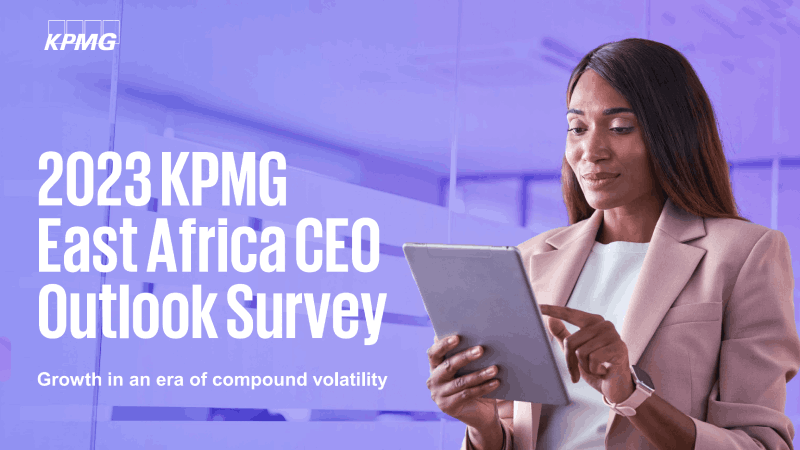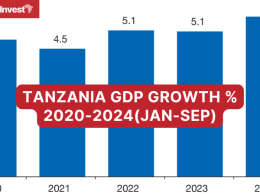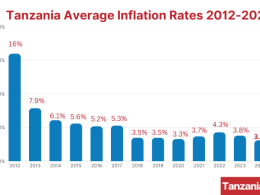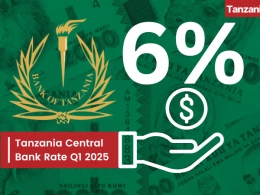Global consulting and professional services firm KPMG recently released its East Africa CEO Outlook Survey 2023, which provides insight into the mindsets, strategies and planning tactics of 50 CEOs from Kenya, Uganda, Tanzania, Uganda, Rwanda, and Ethiopia.
According to the survey, East African CEOs remain confident in the growth prospects of the global economy and that of their countries.
However, they are alive to the evolving risks and trends that pose a threat to their businesses.
There is a significant change in perspective among East Africa CEOs, as they now identify regulatory risk as the primary threat to their organizations’ growth over the next three years, with political uncertainty following closely.
This contrasts with previous years when they viewed emerging technology as the main threat.
The regulatory risks mentioned include trade regulation (82%), political polarization (60%), and public health crises (64%).
Artificial Intelligence (AI) is shaking up things as it becomes increasingly ubiquitous in business and society in general.
Seventy-two percent of East African CEOs are prioritizing investments in AI citing benefits such as fraud detection, cyber-attack response, personalized customer engagement, and faster analysis of data, among others.
Despite this, they are cognizant of the risks that come with implementing AI. Specifically, 83% of East Africa CEOs see AI as a double-edged sword, helping in cyber-attack response but also opening avenues for new attacks.
Forty-two percent of the CEOs cite ethical challenges as a concern in AI implementation.
They also recognize the integral role of environmental, social, and corporate governance (ESG)in assessing organizational performance. They recognize their ESG approach as instrumental in shaping brand reputation and bolstering employee engagement.
While they expect substantial returns from their ESG investments within the next three to five years (54%), they are alive to the consequences of not meeting the ESG expectations of their diverse stakeholders.
East Africa CEOs are reconsidering their strategies for attracting and supporting talent due to the uncertainties observed on a global level.
They are embracing collaborative leadership styles with shared management and operational responsibilities.
Hybrid working was popularized during the COVID-19 pandemic and organizations continued to embrace it post-pandemic.
In the 2022 survey, East Africa CEOs noted that hybrid working positively impacted hiring (64%) and employee retention (75%).
In this year’s survey, there is a shift with 80% of East African CEOs stating that they are likely to reward employees who opt to work from the office with favorable assignments, higher compensation, and promotions.
Eighty percent of the CEOs also see a full return to office in the next three years for roles that are traditionally office-based.
As East African CEOs steer their organizations through rising uncertainties, personal integrity, values and beliefs will play a critical role in making decisions (52%).
The CEOs are also prepared to make choices that could adversely affect the company’s financial returns in the short term if it means safeguarding the brand’s reputation (72%).
Economic Outlook
The majority of East African CEOs expect their local economies to grow, with 92% of them expecting their companies to grow by at least five percent over the next three years. However, only two percent expect to grow by more than five percent.
CEOs face shorter-term barriers to delivering growth over the next 12 months.
While they rank regulatory risks as the top threat to their organizations’ growth over the next three years, they remain wary of political uncertainties, rising interest rates, climate change, operational risks and technology risks, underscoring the impact of increased disruption and the challenges of navigating long-term structural change.
The near-term risks of political uncertainty, disruptive technology, natural disasters, and cyber threats add to the volatility.
Ninety-two percent of East African CEOs are concerned about the impact disruptive technologies will have on their business prospects with 48% wary of increasingly sophisticated cyber threats.
Eighty percent say that rising interest rates and tightening monetary policies could prolong current or potential recessions.
The CEOs also cited managing economic volatility and currency risk as the single biggest challenge when undertaking M&A activity.
Monetary tightening in 2022 saw a flight to safety towards the US dollar as US treasury yields rose sharply, causing emerging market currencies to depreciate against the world’s reserve currency.










